Episode 83: William Jackson
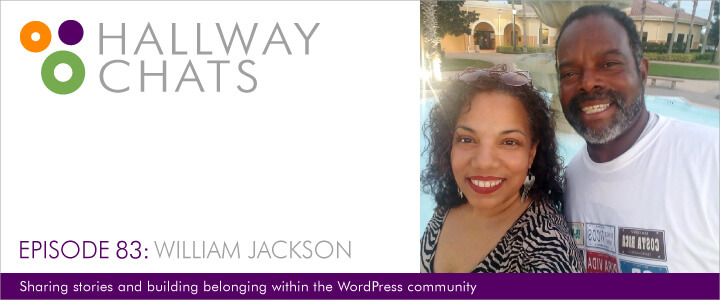
Podcast: Play in new window | Download
Subscribe: RSS
Introducing William Jackson
William Jackson has advanced degrees in education with a focus on educational technology, social media, and STEM. William has worked for NASA as an internet and technology instructor, and as a technology consultant with the Florida Department of Education. He is a past professor at Edward Waters College.
Show Notes
Website | My Quest To Teach
Twitter | @wmjackson
Instagram | @williamdjackson
Episode Transcript
Tara: This is Hallway Chats, where we meet people who use WordPress.
Liam: We ask questions, and our guests share their stories, ideas and perspectives.
Tara: And now the conversation begins. This is episode 83.
Liam: Welcome to Hallway Chats. I’m Liam Dempsey.
Tara: And I’m Tara Claeys. Today, we’re joined by William Jackson. With advanced degrees in education with a focus on educational technology, social media, and STEM, William has worked for NASA as an internet and technology instructor, and as a technology consultant with the Florida Department of Education. He is a past professor at Edward Waters College. Hello, William. Welcome.
William: Thank you. Glad to be here and happy new year.
Liam: Thanks, William. Welcome very much to our little conversation out here in the virtual hallway. Can you tell us a little bit more about yourself, please?
William: Definitely. I am a teacher of 31 years in public education. The majority of my teaching experience is in elementary age where I’m a physical education teacher and technology teacher as well. I focus on STEAM which is science, technology, engineering, arts, and mathematics, and a little bit of music. I just love engaging with the students and being an inspiration and a role model, and just being involved and getting them to be global thinkers and learning more about the world around them. Not just the local education, but a global education.
Tara: That’s wonderful. How did you get started with that?
William: Well, I’m a fourth generation teacher so it was kind of ingrained in me to be a teacher. When I was growing up in high school, I had an opportunity to be a part of a program called the Naval Sea Cadets in Philadelphia. I’m born and raised in Philadelphia. So I had an option of either going into the military or going to college and I chose the college route because I wanted to work with young people. So it was a good fit, and rest is history. Going to college, majoring in education. I wanted to have an environment where I was outside. Physical education was a great fit. I do love the sciences and technology but I have more opportunity to engage with kids with physical education.
Liam: You said you grew up in and around Philadelphia and you work for NASA and you’re a technology consultant, or you work as a technology consultant with the Florida Department of Education. I believe that Edward Waters College is down in Florida as well. When and how and why did you make the shift south? How did that go about?
William: That’s an interesting story. When I graduated college, I wanted to go someplace that was different and the furthest south I could get was Florida so I’ve decided to come down to Florida and got involved in the school system down here. I initially started in Putnam County, taught there for about 10 years. Moved up to Jacksonville and there were more opportunities with Jacksonville being a larger city. I had the opportunity to work at Edward Waters College. They were actually looking for someone to teach technology at time, and this was like the middle ’90s, and they needed someone to teach teachers how to actually implement technology in your classroom. And NASA was a partnership with them. At the time, there weren’t too many involved that knew how to integrate technology in the class. It was a good fit for me because I had that zest and that zeal and that excitement for the two worlds and created a curriculum where we used Microsoft Office at that time. It was an earlier version of Office, if you can imagine in the ’90s. Microsoft still developing your applications. And we had a lab setting where the teachers could get on the computer and I taught them Word, PowerPoint, Excel, and different applications where they could use it in the classroom. We went from a low-tech environment to a high-tech environment.
Liam: Yeah, you sure did.
William: Yes.
Liam: This is really interesting to me because, William, you are the second teacher who we’ve had on the show here who teaches teachers technology. We had a teacher from the Georgia area, Nadia Williams, join us a while back. We met her in Atlanta and she does the same kind of thing for her local school district where she teaches teachers technology. It’s interesting to me that teachers in technology drift to WordPress. Can you tell us about how you found WordPress and what bought you in and your story there?
William: WordPress is, and I use the word ‘a great fit’ a lot. Because it offers a lot of flexibility. When I started blogging about 10 years ago, I was using other programs and it just really weren’t a good fit for me for the kind of content I wanted to post and the multimedia. When I attended my first WordCamp was WordCamp Orlando back in 2014. At that time, I didn’t realize the significance actually of WordPress until the more I got involved in it, the networking that was great. From there, each year I attended the WordCamps and just fell in love with not just the people but the community, the open-source community, and all the knowledge that I was learning so I could take it back and share it with not just the teachers at my school but the students as well. This provided a platform that was easy to use. Learning curve wasn’t too steep but I was able to learn more using that platform to promote my blogging and integrating social media internet. So just allow me to expand, I guess I can say, in my voice mor of a platform and expand my voice.
Liam: Yeah, that’s great. We hear that a lot. Tara?
Tara: Do you find WordPress to be something that’s easy to teach? You’ve taught a lot of different software and technology. How do you find WordPress to be in terms of teaching? What do students stumble on, that type of thing?
William: Definitely. When I was a professor at Edward Waters College, one of the programs that I developed was Educational Technology, Social Media, and STEM. And students during the course of the class had to maintain a blog. They had to consistently blog once a week for the 12-week course. And it provided a platform where even if they didn’t have a lot of knowledge about how to actually blog. Setting up the platform, setting up the application so that they can just log in and use it in one day, it was really simplistic and really easy for them to do it. Because at the time, a lot of students, they are not aware of the opportunities to share content, to create content, and they didn’t understand the value of it, so WordPress was a perfect platform. It also taught them to write better, to be more aware of the content that they create. Once you put it out, you’re just out there permanently. It allowed them to expand their horizons to go into business but to use technology instead. Also, the teachers that were taking the course as well, because it’s a funny thing to have the students when you go to a school know more about technology than the teachers do. You’ve got to really prepare them for it. It’s a wonderful platform, the kids love the blog on it. Actually, for several years as we were doing it, there’s still some young people that took my class that are still bloggers as well.
Tara: That’s cool. Are they using WordPress.com or WordPress.org?
William: Both, both platforms. Beauty of it too is Aida and I, we are organizers for WordCamp Orlando so during the course of us creating the curriculum for the kids camp, one of the things was integrating STEAM into it but also teaching them and your parents how to create website through WordPress.com. And we had a great time doing it, we had a wonderful time. All of them were successful. The cool thing about it was not only, as we were teaching, the kids were creating their sites but the parents saw how easy it was and they started creating sites also [on your phones and your tablets.
Tara: That’s great. What would you say is the one thing that people get hung up on the most? I know it’s easy but is there one thing that you find that’s a sticking point to a lot of people universally or is there–?
William: I think one thing is choosing a theme. You have a large selection of themes that are available, and once you see them, it’s like, you get this excitement built up inside like, “I can see that one, that one. I can integrate pictures.” But then when you start developing that and building, that’s when you learn, “Okay, well, I need to learn a little bit more about how to modify my theme or how to import a graphic or how to import a video.” I think that’s one of the challenges.
Tara: Yeah, I remember that when I first started using WordPress, that that was overwhelming. And you try one and it’s not the right one, then you try another one, it’s not the right one. Yeah, I can see. I remember that from being a new user. Liam, you mentioned Aida. Do you want to tell us who Aida is?
William: Sure. Aida, come here. [laughs] Aida has a wonderful story. We’ve known each other for years and we worked together with a program calledReader’s Theater and through the course of that, we found a love for technology and integrating technology. She’s very artistic. I have no artistic bone in my body. Arts, it’s really not my forte but it is for Aida because she’s an artist and actress. We love going to WordCamps together. We’ve been speakers, organizers, so I’ll just let her explain what she does.
Aida: Hi. I’m Aida and I own a company called Love Built Life. Basically, I help people live life more creatively. That’s what I do. I teach art and sewing, but I’ve also started integrating graphic design and technology. That’s how we’ve gotten involved with teaching kids. When we do the kids camp, we put art and technology together.
Liam: That is awesome. Organizing a kids camp, or organizing a WordCamp is not easy. Adding a kids camp to that is even more work. Talk us through that process a little bit. What was that all like? The idea of a kids camp, yay, and then you start to get into the nuts and bolts and you realize– you’re in education, William, so you’re well ahead of where I would start. But both of you– how that all came together and what that was like once you were in the thick of it?
William: The process is similar. The planning aspect of it– you plan it more, not just the instructional part but you plan it, you want the kids to have fun and be involved and engaged. I took it as more or less a class of lecture environment, which is the wrong way to take it. And Aida was more hands-on process so building that type of program was fun and exciting because it got the kids to be engaged. It was more focused on their ability to have hands-on projects. For example, in Orlando, our projects were recreated, three projects.
Aida: The first project we did for the kids in Orlando. The theme was space, so each individual kid created their own spaceship. Draw it out or they can use their computer. We actually had a few kids draw it. A few of them actually created it on the computer. One even made it an animated spaceship. Then there was a group project. Now each individual child had a spaceship and now they had to create a space station. Each group had to decide what was their station about, what was its mission, where was it located. Many of them, when they created their space station, they actually drew their little ships attached to the station where their ships would be docked.
Liam: That’s wonderful.
William: And they were designated as captains and their parents were their first officers. We showed pictures of Star Trek and Star Wars, playing music in the background. It really made it inviting in that atmosphere.
Aida: Just to let you know that kids camp was not individual to us, someone else was already doing kids camp. We just happen to know them and they in Orlando were kind of stuck. They were already an organizer, they didn’t have time, they were going to cancel it. And they asked us if we would step in. Now, since we’ve stepped in and we’ve added the component, it’s blown up. Now we have people who want to sponsor the kids camp and really make it grow so that every WordCamp has the opportunity to have a kids camp where you have hands-on and blogging aspect.
Tara: I think that’s so wonderful. I attended WordCamp Miami a couple of times and that’s the first time that I saw the kids camp. I thought it was amazing what the kids were learning and doing and just the way that the community was embracing them and supporting them, it was really cool. I’d like to ask you one of our signature questions, which is how you define success, whether that’s personal, professional, or a mixture of both? How do you define success?
William: I guess for me, it’s a combination of personal and professional. Being an educator, you want to see the students that you’re working with grow in some way, to build your self-confidence, to build their ability to excel past where they are. Also, for them to be inspired and motivated to work toward their goals and their accomplishments. So any time a young person is smiling, they’re happy, they’re excited about the learning process, that motivates and inspires me and my teaching ability to do as much as I can and inspire them to move further in than where they are. Education is one of those careers where you really don’t see the fruits of your labors until the kids come back years later and say, “Hey, thank you for teaching me this or teaching me that, or doing this, or being patient with me.” The wonder is and a great feeling when kids and parents come back and tell you thank you.
Tara: Yeah, that’s got to be one of the most rewarding things, being able to see that down the road and all of the many, many lives that you’ve touched. It’s really great.
William: Oh, yeah. I love elementary school. it’s like, from kindergarten to fifth grade, they’re just so full of energy. And it’s interesting, in this day and age, last couple of years, when your third, fourth, and fifth-graders come to you and tell you that they’re following you on Twitter and they’re following you on Instagram, and you’re following them, that plays a different dynamic like, “Okay, let me make sure my content is family-oriented, and fun, and exciting. They will comment on it.”
Tara: Yeah, in this day and age, you have to be very careful of that, for sure. You have children of your own?
William: Yes, my son Shawn, he’s a student at Florida State University. He’s majoring in engineering. My daughter graduated from University of Central Florida. She was majoring in Mass Communications. They’re off doing their own little thing.
Tara: Do they use WordPress for anything?
William: My daughter does. It’s funny, when she started a blog and she kept telling me not to read her blogs. She loves to blog. She also has Instagram. She’s like, “Daddy, I don’t want you to read my stuff.” I said, “I’m not going to be critical of it. I’m going to just let you be you. Let you do your thing.”
Liam: Were you the one person she blocked on Instagram? [laughs]
William: Yes. I can’t make any comments. She’ll unblock me occasionally but I just keep watch. [laughter]
Liam: I love it. Your definition of success around students I thought was really heartwarming in the sense of that’s exactly what we would want a teacher to say. That’s got to be hard day in and day out. You love your job, you love the children, you love teaching. Some days it’s a job, right, and that’s the last place you want to be, just because of the eb and flow of the life. How do you inspire, how do you not just give up, so to speak? You’ve got a room full of faces that are looking up to you. How do you get through that, what’s that like?
William: When you see the faces of the kids and you think that, okay, they are– and it’s a whole and old adage – they are blank slate. They’re just there to absorb all the information that you can share with them. It’s not about teaching a curriculum, it’s not about just teaching them the ability to read, which is important. Or teaching them the ability to do mathematical projects, which is important, but it’s explaining to them why they need to learn this, to be able to apply it in the future. I like to always tell them, “Everything that you’re learning, you should have a global perspective of it with the world because you never know as you get older and you start thinking about careers, where you’re going to end up in the world, or who you’re going to meet.” The joy is when they really get an understanding of, “Well, I just don’t have to stay in Jacksonville. I just don’t have to stay in Orlando. I just don’t have to stay in Tallahassee. I can go work and have a career anywhere in the world.” That shows that the world is so diverse and so open to new ideas and creativity and innovation, it helps to bring that out in young people. And it inspires them as well because being a teacher, you are a role model for them, and it doesn’t matter what grade or what subject because you instill the value of learning in them to want to continue to be universal learners or global learners.
Tara: It sounds like you are a great role model.
William: I say I’m a big kid, too, because I love physical education, being outside and playing games. My knees don’t hold up as much as they used to. We have a good time.
Tara: You mentioned that you also come from a long line of teachers. Were you raised with these same kind of ideas and values, I would imagine?
William: Yes. My mother was a high school business teacher. Actually, when she started teaching, she started teaching on shorthand in high school. That was years ago.
Liam: That’s going back a few years.
William: Yeah, it’s going way back. And the first typewriters that she had were the IBM Electric Typewriters that they had in their classrooms. She progressively integrated technology and she would ask me occasionally to come into her room and help her set up things and plug things in. She was actually my role model because not knowing it at the time, she was guiding me towards understanding the importance and value of technology. It was a good opportunity to see how typewriters progressed and when she got IBM computers, how that progressed, installing software. Actually learning a little bit of coding when the C prop came up, and installing software. And my dad was a reading teacher. He emphasized the value– not just the reading, but comprehension. It’s like, why you should be able to read and understand what you’re reading so you can apply it.
Tara: I like that. William, what would you say is or has been your biggest challenge in getting to where you are as an educator?
William: I think the biggest challenge is meeting the needs of the established curriculum that we have to teach by. And within that curriculum still make learning fun and exciting for students, even though there are certain things that even in physical education, or art education, or music education, or the arts, we have a curriculum, we have to follow. It’s still inspiring and getting that excitement in the students to say, “Hey, even though we’re covering a particular area you may not be comfortable in, get down to your comfort zone and let’s make this fun, let’s make this exciting. But this is how you can apply it to other areas.” One of my things in school is you can’t say the C word, which is the ‘can’t’ word. You can’t say can’t. You can’t tell me it’s too hard because I believe that you can do that and you’re capable of achieving great things. And the curriculum is designed to prepare you to be a continuous learner, and the ultimate goal is to graduate high school, to get that high school diploma. The challenge, there may be changes to the curriculum from the legislature. They may once do this to learn a particular area, like the changes in mathematics. But we have to implement those changes in a learning environment that’s still nurturing, that’s still fun, that’s still engaging and that still provides opportunity for growth.
Liam: I think the fun of learning is so important and not that everything has to be a game, not so much for me at grade school level, but at the university level, at the college level. I was in a program that I got into for about a year and a half and I just did not like it and my grades reflected the fact that I was not studying. Then I changed majors and my grades shot up because I absolutely loved what I was learning and it was, “Oh, this is neat. I totally want to learn this. This is so good, I want more.” And with teachers at the grade school level, they’ve got to teach everything. It’s reading, it’s writing, it’s math, it’s social studies, it’s the foundation of everything. That’s hard to make everything exciting for all students given how different we all are.
William: It is. And you try and find resources online that you can integrate into your lessons. I love using YouTube videos. We recently had a bicycle activity where PE teachers reserved bicycles. I had 25 bicycles reserved, but before I actually got the bicycles, I went on YouTube and pulled up videos that showed how to ride bicycles safely, and showed them to the students a week or two weeks before we actually got the bikes. They had the visual element, we had discussions about how to be safe, and all of that together with finally getting on the bikes and they remembered, “Oh, yeah. I should wear a helmet. Oh, I can wear knee pads or gloves or elbow pads. This is why I do need to have a helmet. Look both ways before you cross the street.” You ingrain those elements in your brain ahead of time so that when they actually do the lessons, they put all the pieces together.
Tara: I want to ask you a little bit about when you were talking about inspiring kids to do their best and graduate. I know there’s a lot of talk in the WordPress community that diversity in our community or lack there of in a lot of ways. Because WordPress is open-source and free and you can really learn WordPress very economically, are you working with different socio-economic groups to teach them? When you’re targeting teaching kids, are they coming from all over or are you seeing the diversities increasing with younger crowd?
William: There is an increase in diversity. When Aida and I do a workshop, we invite all students. It doesn’t matter gender, socio-economic backgrounds, because we try to instill that this is something that you can use now to help you think about what type of career you want in the future. Or the value of learning programming, the value of learning web development. And you can take these skills and learn probably how to network and attend WordCamps. We’re always promoting on our social media platforms why it’s important for young people and college students to attend WordCamp conferences. For the empowerment, for the networking, and the opportunity to meet so many dynamic equals such as yourself. It was great sitting at WordCamp US and having that conversation and learning from each other and just sharing the fun and excitement of the open source community. I think the challenge is to broadcast that information on a broader platform to communities that really need that information, that aren’t getting it through traditional means. Because I would love to have a relationship with schools and colleges and talk to young people about coming out to WordCamps and attending kids camps. Aida and I have talked about that a lot, about what ways could we get that information out, whether it’s actually going to schools or using social media platforms to let the students know the value of attending and participating in one, and fun as well.
Tara: Yeah, I think that’s an interesting concept. I’m just brainstorming in my head some kind of group that would do outreach to schools. Especially schools in inner cities and that type of thing, or rural areas as well, to try to get more kids involved who maybe aren’t going to pursue college or higher education, they can still get a job doing web work, working with WordPress. I think that’s a very interesting thing. I’m going to mull on that a bit. I don’t know if anything like that exists already that does outreach.
William: I usually do the traditional method. I email the principals and provide them the information, but it still goes back to the administrator, do they think it’s valuable enough to share with the students and with the teachers. It’s the same with teachers, the teachers that I know, and educators that Aida knows, artists, we communicate with them about when WordCamp is coming. We’re the organizers of the kids camp for WordCamp Jacksonville. Now, we’re in the process and the communities around us letting schools know this is what’s coming up June 30th the kids camp, WordCamp Jacksonville is 29th and 30th. Even if you just want to attend and learn and network, it’s a valuable opportunity to do so.
Tara: Right. And I know their organization like Kids Who Code and that type of thing that outreach in schools, just don’t know if there’s any WordPress specific thing. Before we run out of time, which we’re about to do, we always ask our guests also about advice. And if you share with us what you would consider to be the best most valuable advice that you’ve received and implemented in your life?
William: I’ll give you what I usually start our presentations with at WordCamp or when we’re talking with kids. I’ll hold up my phone and what I usually say is, and Aida reminds me to say it in the way that everyone understands, so I do it this way. I’ll have everybody repeat me and I’ll say, “This can be your best friend or your worst enemy depending on the content that you post online.” That’s very transformative because it gets people to think about, “Okay, well, I can pick up this phone and get on Facebook, Instagram, Twitter, whatever platform, and share my voice, but I still have to be accountable and responsible for my content.”
Tara: That’s great advice and very specific. Yes, even for non-kids, that’s important advice.
Liam: Absolutely.
Tara: Love/hate relationship with that thing.
William: Exactly. [laughter]
Tara: William, it’s been such a pleasure to have you on the show and to meet Aida as well. Thanks for being here today with us. Where can people find you online?
William: They can find us on, let’s see, our Instagram is @lovebuiltlife and @williamdjackson, and Twitter is at @wmjackson and I believe it’s @lovebuiltlife as well. her’s is easy.
Aida: Mine is @lovebuiltlife anywhere.
Tara: Great. Well, thank you so much for joining us. I hope to see you soon, bye-bye.
William: Bye-bye, I had a great time.
Liam: Bye-bye, take care.
William: Bye-bye.
Tara: If you like what we’re doing here – meeting new people in our WordPress community – we invite you to tell others about it. We’re on iTunes and at hallwaychats-staging.ulpgsyz6-liquidwebsites.com.
Liam: Better yet, ask your WordPress friends and colleagues to join us on the show. Encourage them to complete the “Be on the show” form on our site, to tell us about themselves.
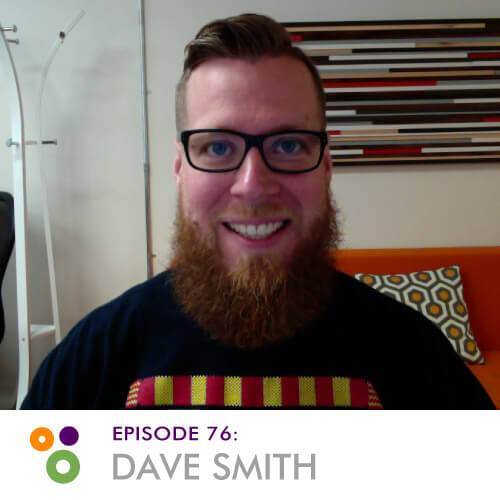
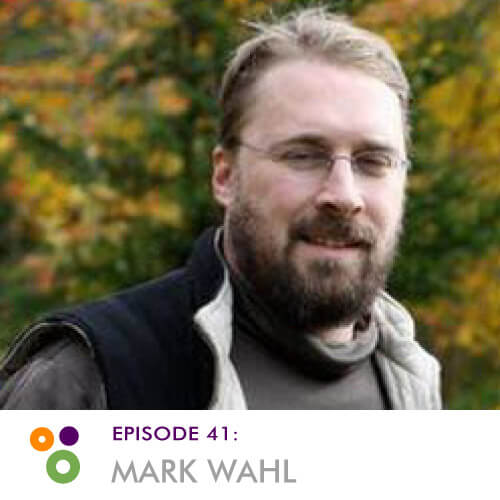
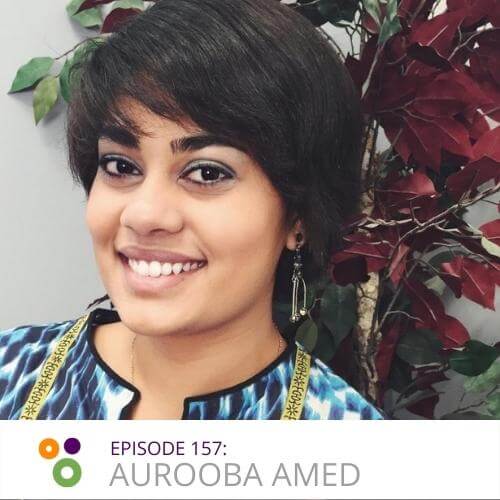
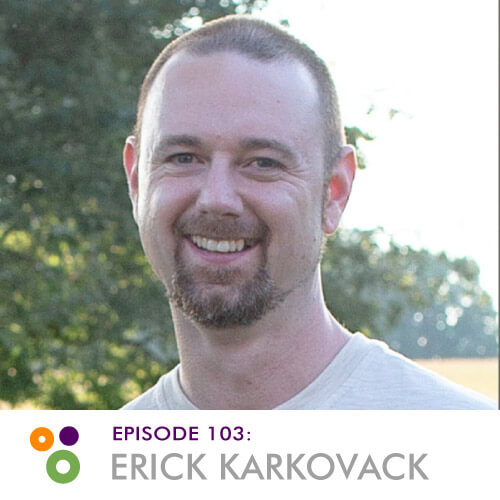
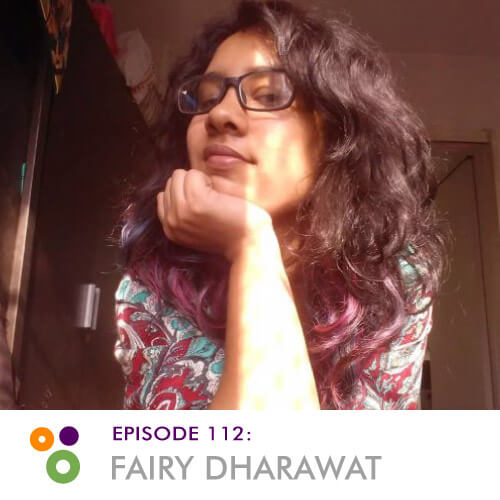
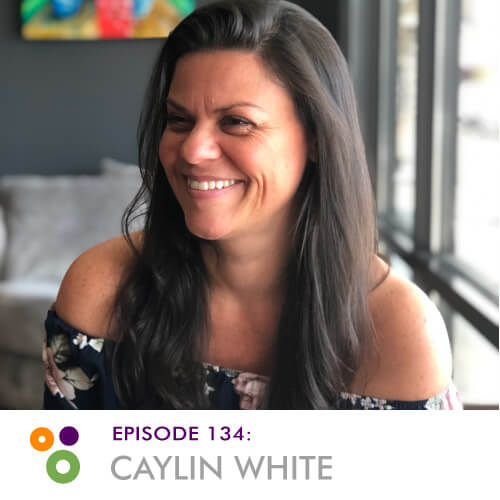
6 Comments